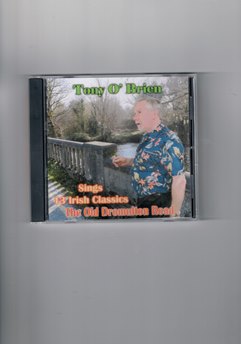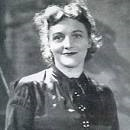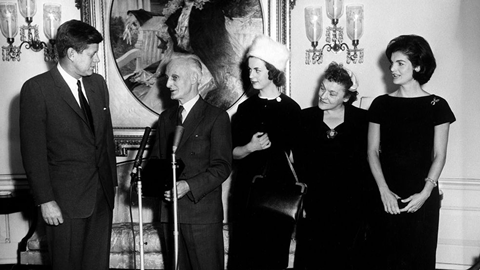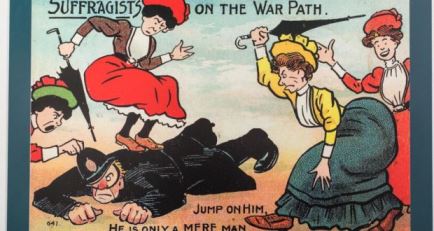CDs and Blasts from the Past
On his CD, The Old Dromulton Road, Kerry singer Tony O’ Brien gives a unique treatment to thirteen Irish ballads including the title track; a song which he got from the writer. But it cost him! Tony told me, “I bought the right to use the title song, The Old Dromulton Road from the composer for a pint of stout in The Village Inn in Currans as long ago as 1987.
“It was mine, free of charge as long as I would record it someday. However, I didn’t want it this way so the price was fixed at one pint of Guinness,”
“The song was composed by a Michael O’Donoghue whose parents were school teachers in the Currow area years ago.
“In 1993 I heard he had died sometime earlier and so I recorded his song. My mother came from Carrigaholt, Co. Clare and wanted me to record My Lovely Rose of Clare and the rest of the songs on the CD are personal choices.”

|
Tony’s mother never heard the recording as she and his wife Kaye both passed away within a month of each other in January and February 2016.
“I’m dedicating the collection of songs on this CD to their memory,” said Tony.
* * * * *
There was no Listowel writers’ week 2020 due to circumstances beyond everybody’s control. However thanks to Billy Keane and film-maker Michael Pixi O’ Gorman I’m able to give you a link to highlights from “Healing Sessions” of other years.
John B's Healing Waters
YouTube
More.
* * * * *
By Mattie Lennon
For decades, in Irish music circles, Delia Murphy was known as “The mammy of them all.” She was born in Ardroe, Roundfort, County Mayo, to a well-off family. Her father, John Murphy, from Hollymount, made his fortune in the Klondike Gold Rush. He met and married Ann Fanning from Roscrea, County Tipperary and they came back to Ireland in 1901 and purchased the large Mount Jennings Estate in Hollymount. The Georgian house at which he had stared, in wonderment as a child when it had a chandelier inside and an orchard outside.

|
John allowed Irish travellers to camp on the estate and according to Delia she learned her first ballads at their campfires.
JShe was educated at Presentation Convent, Tuam, Dominican College, Dublin; and University College Galway (UCG), where she graduated with a Bachelor of Commerce degree. It was there she met Thomas J. Kiernan, a tax inspector, whom she married on 17th February 1924, when she was 22. (It was rumoured each family thought their child was marrying beneath them.)
Kiernan then joined the Irish diplomatic service, where his first posting was to London. While there his talented wife sang at many venues including many gatherings of Irish emigrants and became quite famous. In 1939 she recorded The Blackbird, The Spinning Wheel and Three Lovely Lassies for HMV.
In 1941 her husband was appointed Irish Minister Plenipotentiary to the Holy See in Rome. Delia Murphy helped Father Hugh O'Flaherty (the "Vatican pimpernel") to hide Jews and escaped allied soldiers from the Nazis. In 1946 she was awarded to Dame Commander of the Equestrian Order of the Holy Sepulchre.
Thomas Kiernan later served as Irish High Commissioner and later first Ambassador in Australia, and later to West Germany, Canada, and the United States. Delia recorded "The Queen of Connemara" In 1961, while she was living in Ottawa, Thomas Kiernan died in December 1967
Some years ago Aidan O'Hara, who met Delia a few times in the late 1960s when she was living in Canada and he was a teacher there, published her biography entitled If Live Till I Die. He had already collected a lot of material on the singer he described as “Ireland's first pop star.” He added "When she died, no one did anything about it and I thought that a little odd, so I made a radio programme about her and then a television one. "She'd made a great impression on people and she had the whole country singing but of course that area of music ballads and come all ye's was not thought to be very respectable. Anyway, I wrote the book because I felt someone should."
To ensure that “ The Mammy of Them All” will not be forgotten her grandson Ronan Browne has compiled a CD ( If I Were a Blackbird.”) The 21 songs on the album span the years 1938 to 1941.
Ronan told me, My maternal grandmother, the singer and entertainer Delia Murphy, is widely remembered with great affection today 40 years after her death; not only did she write, record and perform what have become some of Ireland’s best loved songs, but she travelled and sang all over the world. Delia’s love of music began early with a childhood awakening of interest in the living culture and folklore of the farm workers, local artisans and visitors to her family farm.
She said that she spent many hours listening to the tinkers talk and sing songs and this informed much of her later output of both written songs and the re-constructed fragments of songs she had heard in those early days. She continued throughout her life to write new songs and resurrect old ones and never lost an opportunity to share her passion, whether with a single enthusiast or a huge audience. Delia balanced this writing, recording and performing with a hectic life as the wife of one of Ireland’s most celebrated ambassadors; she and her husband were at the forefront of an awakening of cultural pride after the devastating Irish Civil War which followed hundreds of years of English colonisation.
The folk singer Liam Clancy saw Delia as a pivotal figure in the Irish tradition: ‘She had been a great inspiration,’ said Liam when he finally met her in 1968. ‘We idolised her. I grew up in the height of what could be called the ‘National Inferiority Complex’ in Ireland. Irish people were very sensitive to the pig-in-the-parlour ‘dirty Irish’ image and they even became ashamed of their own music and songs.
But then along came Delia Murphy and she gave us all a feeling of confidence and a feeling of value, that there was something to our traditions, and that we had no need to be ashamed of it, because she wasn’t. And she became a heroine and the most popular singer in the country’.
The music historian Reg Hall wrote that she could often be exuberant: “A typical example ofher joining in ‘the crack’ took place in 1951, when a promoter arranged for her to parade through an area of dense Irish settlement from Chalk Farm underground station to the Galway Club in Camden Town, marching arm-in-arm with the Sligo boxer Joe Quigley, behind Tommy Nolan’s Inisfail Pipe Band.”
Her grandson Ronan says, “Delia was an extrovert, loved by many people; she is claimed by numerous singers as an important musical influence right through to today; she was Ireland’s first female popular singer and it is widely acknowledged that she paved the way for the 1960s folk revival......but to me she was my granny who always had a bag of iced caramels for me whenever we met !”
If I were a Blackbird is available (Price €15,including P&P, from Ronan Browne, An Spiddeal, Conemara, Co. Galway. Email; ronanbrownemusic@gmail.com or www.deliamurphy.com
Picture; John F Kennedy Presidential Library and Museum Photo: JFKWHP-1961-02-15-C (Part of the White House Photographs Collection). Presentation of an antique Irish silver christening cup for John F. Kennedy, Jr to President Kennedy and First Lady Jacqueline Kennedy by the Ambassador of Ireland, Thomas J. Kiernan, with wife Delia Murphy and Air Hostess Margaret Teresa Ryan on 15th February 1961.

|
* * * * *

|
* * * * *

|
See you in August.







No comments:
Post a Comment